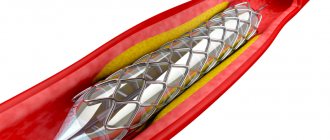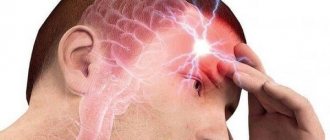Cardiovascular diseases are a real “plague” of our century. They are responsible for the majority of deaths. Among the extensive list of diseases from which modern man most often suffers, heart and vascular diseases occupy a special place. These pathologies are the undisputed leaders in the number of deaths in the world. And our country, unfortunately, is not on the list of exceptions - millions of Russians have heart problems. Therefore, it is not surprising that cardiovascular (CVD) diseases are one of the most common reasons for the release of young men from military service.
Heart pathologies or cardiopathy not only worsen the patient’s quality of life, many of them are deadly and require significant restrictions from the person regarding exercise and nutrition. It would seem that such ailments are little compatible with the harsh everyday life of the army. However, not all CVD are grounds for exemption or deferment from conscription. The decision on each specific case is made by a medical commission, which takes into account the severity of the disease, its form, the conscript’s ability to endure significant physical activity and other factors. Often the military registration and enlistment office sends a young man for additional examination or treatment.
Will people with heart arrhythmia be accepted into the army in 2021?
For a conscript with heart failure, military service threatens exacerbation, complications, and death. 65% of deaths occur in severe forms of the disease. Among the list of pathologies, arrhythmia is among those diseases for which they are not accepted into the army. However, for this to happen, you need to undergo a lot of examinations, consultations with specialists, and have supporting documentation.
Chronic heart failure develops against the background of various pathologies of internal organs and systems. Accompanied by disruption of the heart and pumping function. As a result, the human body does not receive the necessary oxygen and important nutritional components, and works under load. In a stressful situation, the condition worsens, which can lead to cardiac arrest and death as a result of oxygen starvation.
When examining pre-conscripts, doctors are guided by the New York classification of the functional state of patients with heart failure and arrhythmia.
- There are no restrictions on physical activity, normal exercise does not have an adverse effect on the body, there is no shortness of breath, weakness, increased fatigue, or irregular heartbeat.
- There is a moderate limitation in physical activity. In a calm state, there are no deviations in the functioning of the heart or the patient’s well-being. Physical and emotional stress causes increased heart rate, weakness, dizziness, and other symptoms of arrhythmia.
- Significant limitation of physical activity. There is an increased risk of an attack of heart failure during physical and emotional stress. A stressful situation is contraindicated.
- Unpleasant sensations and discomfort are constantly present. It hurts and needs constant care. Physical activity is limited as much as possible; slight anxiety leads to serious deterioration in health.
Whether someone with heart failure will be accepted into the army depends on how much the pathology reduces the normal functioning of the heart. Since arrhythmia is accompanied by disruption of the functioning of other internal organs and systems, other diseases are also taken into account. Consequently, in 2021, conscripts from 1st and 2nd FCs are being recruited with arrhythmia. They won’t take it from FC 3, 4. However, to confirm the diagnosis, it is necessary to undergo a consultation with several doctors, a diagnostic examination, and have supporting documentation.
Symptoms of the disease
The main symptom of angina is pain that appears in the sternum area. Almost all patients describe it with the same symptoms. These include:
- Paroxysmal appearance;
- A pressing and squeezing pain occurs in the area of the heart;
- The pain syndrome is localized in the upper chest;
- Unpleasant sensations move to the right hand.
The following factors can provoke such changes in the body:
- Fast walk;
- Increased pressure;
- Hypothermia of the body;
- Binge eating;
- Nervous tension;
- Emotional disorder.
Cardiac tachycardia and the army
Physiological tachycardia under a certain load on the body is not considered a pathology and does not pose a health hazard. However, in some cases, it indicates other existing pathologies in which military service can cause complications, even death.
Tachycardia is expressed as a change in heart rate - more than 90 beats per minute. Under the influence of certain factors - alcohol, physical activity, sex, mental stress, emotional excitement, the heart rate increases, but does not cause serious consequences for the body, it normalizes when negative factors are eliminated. With pathological tachycardia, a change in the frequency of beats per minute is observed in a calm state, and under the influence of provocateurs it threatens life.
Tachycardia is accompanied by fainting, frequent dizziness, weakness, shortness of breath, so conscripts and their relatives are concerned about the question of whether it is possible to serve in the army with such a diagnosis. It all depends on the reasons provoking tachycardia, the general condition of the young man, and the presence of concomitant diseases.
- Sinus tachycardia manifests itself with increased physical and emotional stress. The conscript is taken to serve with minor restrictions on the performance of duties.
- Supraventricular tachycardia occurs even in a calm state and requires immediate medical attention. The conscript is given category "G", as temporarily unfit. The examination will be repeated next year.
- Ventricular tachycardia is the most dangerous type of disease, threatening the life of a conscript. It is often caused by myocardial infarction or drug intoxication. The conscript is given category “G” or “D”, as unfit for military service.
In order not to go into the army with a diagnosis of tachycardia, you must first undergo examination by several specialists and have supporting documentation. The military commission is guided by the results of its own examination, as well as those of its colleagues who studied the conscript’s body earlier and wrote a conclusion.
What is arrhythmia, its types
The human heart performs a pumping function due to contractions of the myocardium (heart muscle), due to which blood is pushed into the vascular bed. To enable this function to be performed, contractions (systoles) occur at regular intervals (rhythmic contractions) and with a certain frequency.
The normal frequency is 60–80 systoles per minute. This is possible thanks to the work of the sinus node (nerve node localized in the right atrium), which generates a nerve impulse. It spreads through the conduction system of the heart and causes muscle fibers to contract. Any disturbance in the rhythm or frequency of contractions is called arrhythmia. There are several main types of violation:
- Sinus arrhythmia of the heart - a violation of the generation of impulses occurs directly in the sinus node, such a disorder is most often characterized by a significant increase (tachycardia) or decrease (bradycardia) in the heart rate.
- Atrial form - disturbed contraction rhythm is the result of the formation of pathological impulses in the conduction system of the atria (with the exception of the sinus node).
- The ventricular form is a pathological impulse that affects the frequency and rhythm of contractions and is formed in the conduction system of the ventricles (usually in the atrioventricular or atrioventricular node).
They also distinguish a permanent form of rhythm disturbance and paroxysmal arrhythmia with its development in the form of attacks. When the passage of a nerve impulse through the conduction system is disrupted, a blockade occurs. The rhythm and frequency of systole is most often affected by atrioventricular block, in which the passage of impulses from the atria to the ventricles is disrupted.
Heart diseases that will not allow you to join the army
The following heart diseases are completely exempt from military service:
- Cardiosclerosis;
- Vice;
- Congenital pathologies;
- Rheumatic attacks;
- Ischemic disease;
- Heart failure of moderate to severe degree (3, 4 FC).
People with heart problems are taken into the army if doctors manage to establish that:
- Pathology occurs due to the influence of physiological causes - increased release of adrenaline due to increased physical activity, alcoholic beverages, sports;
- The disease responds well to treatment with drugs and does not threaten the young man’s life;
- There are no concomitant diseases.
If, as a result of a medical examination by doctors, a decision is made to limit physical activity in the army, the conscript will be sent to the position of driver, guard, specialist in fuel and lubricant units, chemical units, security guard, etc. To avoid misunderstandings, mistakes, and negligence of the military commission, if you have heart problems, take care of a full examination in advance. If your health worsens immediately during the military commission, request a delay to complete a comprehensive diagnosis.
Stages of the disease and its classification
Like most other diseases, varicose veins go through several stages. They differ from each other in the distribution of pathology and its symptoms. It is customary to distinguish three stages:
- compensation;
- subcompensation;
- decompensation.
It must be borne in mind that complications can occur at any of these stages, but the maximum likelihood of this is possible only at the last two. Varicose veins can serve as a trigger for the development of the following pathologies:
- trophic eczema;
- deep vein thrombosis;
- erysipelas;
- thrombophlebitis.
Reviews
Dear readers, you can leave your feedback on whether people with a heart condition are accepted into the army in the comments; your opinion will be useful to other users of the site!
Igor:
“If you have heart problems, tachycardia is a concern, before going to the commission at the military registration and enlistment office, you need to do daily ECG monitoring. The procedure is painless, harmless, and does not require special preparation. Records heart rate throughout the day. This must be done because the ECG does not always show these abnormalities. Tachycardia can occur spontaneously, unexpectedly, not exactly when you are being examined by a military commission. I had this happen, they got me a deferment, then I provided this kind of evidence.”
Anton:
“To determine category B, you need persistent disturbances of the heart that are not treatable, life-threatening, disturbances in heart rhythm and conduction. If this can be proven and confirmed, you can count on a postponement and ineligibility. In other cases, they will take you away on the run!”
Deferment from the army - as a way to repay the loan
There is another option that allows the borrower to fulfill debt obligations to the bank.
There are practically no healthy people. The borrower at the military registration and enlistment office refers to the fact that an additional commission is required because he has health problems. There is no need to deceive, but there is no need to hide illnesses either.
As a result, the military registration and enlistment office will order an additional examination. And during this time, the borrower will not only undergo an examination, but also fulfill payment obligations to the lender. As a result, it will be possible to either repay the loan in full or delay the examination until the age of 27.
Increase financial literacy with IBC. Subscribe to the article newsletter.
Features of angina
This disease is accompanied by regular pain in the heart, heaviness in the limbs, shortness of breath and high blood pressure. The lumen in the vessels and capillary network gradually decreases, which reduces the access of oxygen levels to the head center.
As a result, the patient experiences a nagging pain that gradually moves to the arm, shoulder girdle or back. Such attacks have different periods of manifestation. The main cause of this pathology is atherosclerosis of the coronary arteries.
Determination of suitability category
In the process of examining conscripts with a similar diagnosis, the criteria of the Canadian classification, which were developed in 1975, are taken into account. In this case, they look at the person’s ability to perform any physical exercise.
If a young man with angina shows changes in the psycho-emotional and physical background after exercise, then he is considered unfit for military duty. He is assigned fitness category “D” and given a military ID.
Medical practice distinguishes three types of angina:
- Angina pectoris of 6 and 3 functional classes. If this disease is present, in accordance with Article 44, the conscript is assigned fitness category “D”. The young man is considered unfit for military service in the army;
- Angina pectoris 2 functional class. In this case, they are guided by article number 44, paragraph “b”. The young man is assigned fitness category “B”;
- Angina pectoris 1 functional class. People with a similar diagnosis are assigned category “B” and are exempt from military service.
The advanced form of the disease leads to limitations of the patient. The body's cells do not receive the necessary oxygen, which leads to deterioration of nerve conduction. As a result, a gradual imbalance occurs throughout the body.
How to prove a diagnosis at a medical examination
According to the law, a conscript who has been diagnosed with heart rhythm disturbances is sent for additional examination. In reality, it is difficult to get a referral from military doctors. A young man will be able to prove the diagnosis if his parents were seriously involved in the health of their child. If dangerous symptoms appear, you should immediately contact the clinic, carry out treatment and document all this. For the commission, a young man must take a medical card with extracts from the medical institution in which he is registered.
Chronic diagnosis is confirmed by certificates from a cardiologist. If there are none, the military commission may not give a referral for additional examination. The conscript's words are not enough for this. If a young man complains of pain in the heart area, he needs to have notes in his medical record that he visited a cardiologist and was treated several times, perhaps even in a hospital setting. The military commission will not be able to ignore the documents. The man will be sent for examination, including:
The information received will be fundamental for making a decision by the IHC. Based on its results, the young man will be declared healthy and will serve in the army, or he will be given a deferment for treatment, and after six months he will be called back to the commission. A conscript with serious heart pathologies will be placed in the reserves and removed from conscription.










